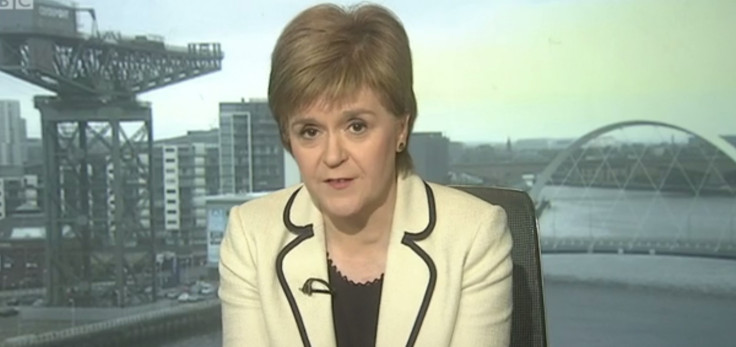Scottish Parliament votes to oppose UK government triggering Brexit process
Despite vote being only symbolic, Nicola Sturgeon says it is one of most significant since devolution.
The Scottish Parliament has voted to oppose the UK government kicking off the Brexit process by triggering Article 50.
Despite the vote being only symbolic after the Supreme Court ruled in January 2017 that there was no legal requirement for Holyrood to give consent to trigger Brexit talks, Scotland's First Minister Nicola Sturgeon said she would let her MSPs have a say.
She had said the vote would be one of the "most significant in the Scottish parliament since devolution."
The MSPs voted 90 to 34 in favour of the Scottish government's motion in Holyrood which states that the European Union (Notification of Withdrawal) Bill should not proceed, BBC reports.
The Scottish National Party led by Sturgeon, Liberal Democrats and most Labour MSPs supported the motion. Three Labour MSPs - Neil Findlay, Elaine Smith and Richard Leonard - went against the party whip and voted against the motion, together with the Conservatives.
The motion was put forward by Scotland's Brexit minister Michael Russell who accused the UK government of failing to properly consult the devolved administrations on an agreed British position on Brexit.
The motion also said the UK government had refused to give a guarantee on the position of EU nationals who are already residing in the UK, and had failed to provide answers to questions pertaining to the full implications of Britain's withdrawal from the single market.
A amendment put forward by the Green Party stated that the decision to go ahead with the Brexit Bill did not respect the majority vote to remain within the EU "that was returned in every council area in Scotland." The amendment was backed by 72 votes to 33 with 18 abstentions.
Russell opened the debate by saying that Scotland had voted "clearly and decisively" to remain in the EU in the 2016 referendum.

"This vote is more than symbolic. It is a key test of whether Scotland's voice is being listened to, and whether our wishes can be accommodated within the UK process," Russell told the parliament.
He said the Scottish government had worked "long and hard" to deliver compromise proposals, which would have permitted Scotland to continue to remain in the single market when the rest of the UK exits the union.
Russell said the debate in Holyrood was a debate "about the sort of country the UK is becoming and the sort of country we in Scotland wish to be. And the contrast between those countries is stark."
A UK government spokesman said that Holyrood was free to debate any issue it chooses and that it would "continue our engagement with the Scottish government and with people and groups across Scotland as we prepare to leave the EU to secure the best deal for Scotland and the UK."
Scottish Conservatives' John Lamont accused the Scottish government of trying to "manufacture a grievance out of nothing."
He said the Scottish government was trying to "portray the Supreme Court ruling and the UK government's bill to trigger Article 50 as an example of Scotland being ignoreed.
"The truth is actually more simple. It is a matter for Scotland's other parliament to deal with and it is, a a reserved matter, one for Scotland's MPs to scrutinise," Lamond said.
He reminded fellow MSPs: "This is how the devolution settlement works, and it is time that the SNP accepted this principle and move on on from grievance politics. Despite the rhetoric from the Scottish government, the reality is that they are being given plenty of opportunity to engage n the process of the UK leaving teh EU."
© Copyright IBTimes 2025. All rights reserved.






















